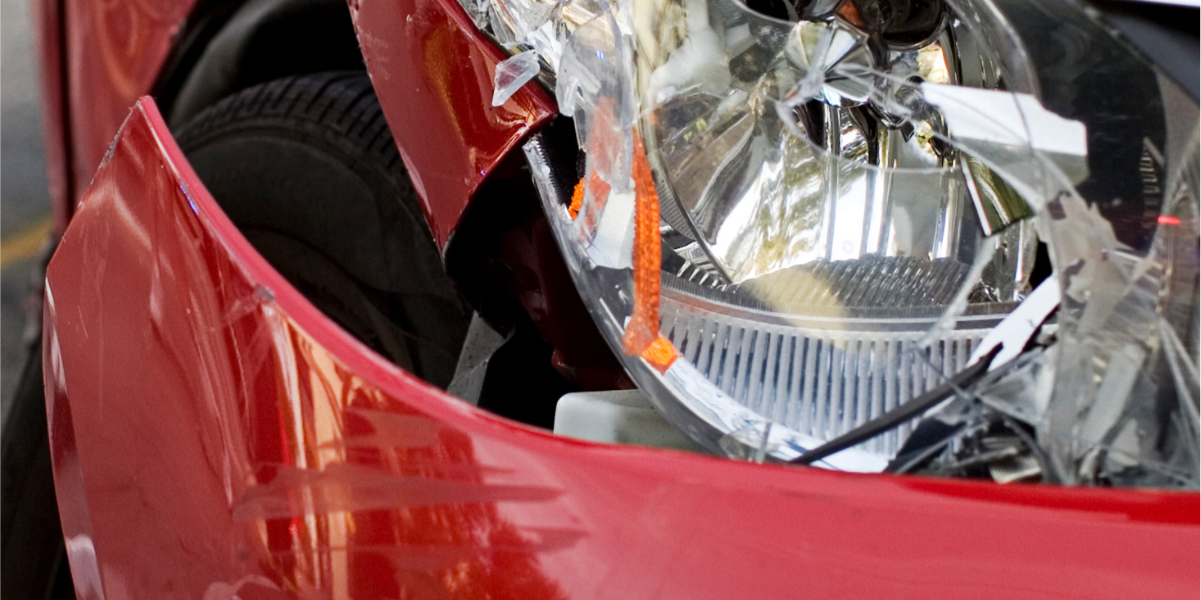One of the most common types of motor vehicle accidents are rear-end collisions. Rear-end accidents range in severity depending on the speed of the at-fault driver. The most serious rear-end crashes occur when the at-fault driver fails to reduce their speed prior to the collision. These high-speed rear-end wrecks are often caused by drunk drivers or drivers who are driving while distracted.
One of the most dangerous mistakes that victims of rear-end collisions often make is that they underestimate the severity of their accident injuries. This mistake often causes accident victims to delay important medical attention and treatment that they need. No matter how serious you think your rear-end collision injuries are, you and those involved in any motor vehicle accident must seek medical attention.
When someone is riding in a car that is rear-ended, the victim’s body may sustain significant accident forces that lead to injury. The accident forces cause a sharp jerk, especially when restrained by a seat belt. The accident forces often create a “whipping motion” of the head and neck area resulting in potential tissue and spinal damage. These injuries are complex, and only an experienced medical doctor can assess your injuries effectively.
The most common rear-end collision injuries include, but are not limited to:
Amputated or Crushed Arms, Legs, or Hips – Accidents cause a lot of crushing injuries that can result in surgical amputations. When a person is entrapped in a crushed inside of a wrecked motor vehicle, they are at risk of being cut or crushed by the vehicle’s wreckage. These injuries take substantial periods of time to heal and months of physical therapy. In high-speed collisions, an occupant’s legs or arms could be mutilated or crushed beyond repair. In some rare cases, the accident victim might be able to decide between saving the limb or having the limb surgically removed. However, in the most severe motor vehicle crash, the emergency room doctor or general surgeon will make that decision based on their assessment. The top priority is saving the victim’s life.
Back Injuries – A disc herniation or rupture caused by a motor vehicle accident can lead to substantial pain and numbness in other areas of the body. In some circumstances, a back injury is not noticeable until several hours after the motor vehicle accident due to the body’s release of endorphins. This is why accident victims should seek medical attention after an accident.
Head and Brain Injuries – Rear-end collisions often cause head injuries and brain trauma. These injuries range from concussions to brain bleeds to traumatic brain injuries. Head and brain injuries are especially dangerous because the symptoms are not always immediately apparent. A thorough medical examination will screen for brain injuries.
Seat Belt Injuries – Seat belts save thousands of lives each year. When a motor vehicle rolls, passengers who are unrestrained by seatbelts or car seats may be thrown from the motor vehicle leading to head trauma or crush injuries. However, seat belts can cause injuries to passengers involved in rear-end collisions. When your car is struck from behind, your seat belt will automatically tighten to keep your head from striking the dashboard, steering wheel, or windshield. Seat belts often cause injuries to the victim’s soft tissue, neck, chest, and torso.
Spinal Injuries – Rear-end collisions often cause injury to the accident victim’s vertebral discs. These spinal cushions help protect the spine from sliding out of place or causing a herniated disk. When there is a “pinched” nerve, there will be pain, lower-extremity dysfunction, and numbness due to the nerve injury. In the worst accidents, an accident victim could suffer partial or complete paralysis. Back and spinal injuries can cause permanent injury making it difficult for accident victims to return to work. It is possible that an accident victim with a spinal injury will need rehabilitation for the rest of their life.
Whiplash – In a majority of rear-end collisions, occupants in a motor vehicle that was rear-ended will sustain a severe neck strain, also known as whiplash. Whiplash injuries cause headaches, discomfort in the neck, stiffness, or paralysis. Severe cases of whiplash can cause weakness, pain, or numbness in the shoulders and arms.
After an accident, it is crucial that you and those in your vehicle quickly examine yourself for any accident-related injuries, even if you don’t feel pain right away. Keep in mind that rear-end collision injuries may take several months to manifest. Damage to the brain and spinal cord are two examples of injuries that can have long-term consequences if undiagnosed.
We Know What It Takes To Win!®
If you or a loved one suffered the loss of a loved one in an accident, contact Montlick Injury Attorneys, for your free consultation today. Our law firm has been representing those who suffer serious injuries or lost a loved one in an accident for over 39 years. Our trial attorneys have recovered billions of dollars for our personal injury clients through negotiated settlements, litigation/lawsuits, settlement of lawsuits, jury verdicts, mediation, and arbitration awards.
Please visit our Montlick Injury Attorneys reviews to see what our clients have to say about our commitment to exceptional service.
No matter where you are located, our attorneys are just a phone call away, and we will even come to you. Call us nationwide 24 hours day/7 days a week for your Free Consultation at 1-800-LAW-NEED® (1-800-529-6333), or simply dial #WIN® (#946) from your mobile phone. You can also visit us online at Montlick.com and use our Free Case Evaluation Form or Free 24-hour live chat.
Source:
—
Montlick Injury Attorneys
17 Executive Park Dr NE
Atlanta, GA 30329, United States
Hours: Open 24 hours
Phone: (404) 529-6333
Toll Free: (800) 529-6333
Plus Code: RMH6+38 Atlanta, Georgia, USA
Directions


